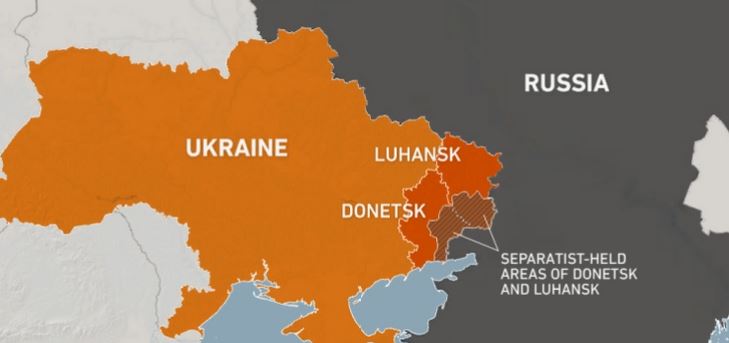Investors prepare for the toughest sanctions yet as Russian assets disappear amid military attacks in Ukraine. More than $259 billion in stocks were liquidated as a result.
The military offense in Ukraine affected markets globally, and a new battle for risk aversion began.
Following Russian President Vladimir Putin’s decision to “demilitarise” its neighbor, Moscow’s capabilities suffered a significant blow, provoking international condemnation and Washington’s threat of “severe punishment.”
Does the Russian central bank mention interest rate hikes?
The Russian central bank’s new overnight repo auction does not mention interest rate hikes but does provide banks with more liquidity by offering 1 trillion rubles ($ 11.5 billion). 525 basis points have raised the benchmark interest rate over the past 12 months to contain inflation.
Early evening trading in Moscow saw some gains for the stock and the ruble. However, the ruble fell by 3.6% to 84.2250 at 12:59, falling as much as 9.4% earlier. Losses were cut by 25% based on the MOEX.
Sberbank PJSC plunged 45% in price to 114 rubles, Russia’s largest creditor. Gasprom PJSC traded 39% weaker. The country’s credit default has increased to over 750, and some government bonds are at difficulty levels.
In addition, Ukraine’s debt has fallen to $ 2,033, yielding 88%, while the local money market has stagnated and daily currency withdrawal limits have been imposed.
When the Ukrainian conflict first erupted eight years ago, the central bank’s response was more measured!
Why have policymakers raised rates on the first working day?
After the Russian parliament approved force in Ukraine, politicians have eventually raised rates on the first working day following the approval.
During the oil price fall, the Bank of Russia decided to raise its key rate to around 17 percent to eliminate the money crisis.
Rates may not rise shortly, although it will depend on how the ruble moves in the future whether they do.
The ruble may depreciate over time in a significant way. The central bank’s job is to slow the ruble’s devaluation by intervening with monetary policies. The bank has accumulated significant foreign exchange reserves to do so.
At the peak of the previous ruble crisis in 2014, we saw an increase in an emergency as a second line of defense. As a result, large Russian companies and banks may need more support to target the West.
Joe Biden announced yesterday that he would report “other consequences” for Russia on Thursday in addition to the sanctions announced earlier this week.
In addition to direct monetary interventions, Russia’s central bank could take other steps to calm the market.
The possibility of restricting cross-border capital flow and asset purchases, primarily related to domestic debt, is an option, Sofya Donets, an economist at Renaissance Capital in Moscow, said.
A more challenging sanctions approach is possible under the current situation” and could be in line with the “political impulses” of the central bank, he said. “That makes them less predictable.”


